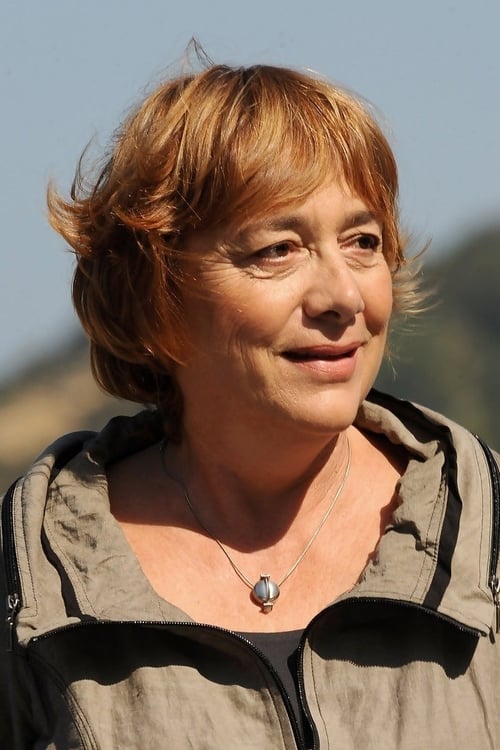Léa Pool
출생 : 1950-09-08, Geneva, Switzerland
약력
Born in Switzerland in 1950, Léa Pool emigrated to Canada in 1975 and taught film-making from 1978 to 1983. Named “Chevalier de l'Ordre des Arts et Lettres de France” in 1994. Lives in Montreal.

Revisiting her film set photos, director Léa Pool reflects on her prolific career. The filmmaker left Switzerland at the age of 25 to settle in Quebec and embark on a surprising career. She reinvents herself from film to film, exploring themes that deeply resonate with her: identity, exile, maternal absence, transitional spaces... In both documentary and fiction, she has directed 20 feature films that feature strong female characters and contemporary issues. Somewhere between a masterclass and an intimate conversation, this documentary invites Léa to share her cinematic journey in front of the camera.

Screenplay
Aïcha is a troubled teenage girl who cannot forgive her mother for kicking out the stepfather she adored. Aïcha longs for him to come back and take her away. When she meets Baz, a man twice her age, it’s love at first sight for her; the real kind, the one that hurts. Baz wants to help this lost little girl, but she wants much more from him, and is ready to do anything to get it.

Director
Aïcha is a troubled teenage girl who cannot forgive her mother for kicking out the stepfather she adored. Aïcha longs for him to come back and take her away. When she meets Baz, a man twice her age, it’s love at first sight for her; the real kind, the one that hurts. Baz wants to help this lost little girl, but she wants much more from him, and is ready to do anything to get it.

Script
Most women in prison are mothers. When a mother is imprisoned, her newborn or her young child can remain with her in prison or they can be separated and taken in by a family member or by the State. These situations aren't without risk for the child. The film takes the child's point of view and its goal is to cast a light on them: too often they are forgotten, invisible and bare scars for their entire life. The filmmaker follows the daily lives of some of these kids in Bolivia, Nepal, New York and Montreal.

Director
Most women in prison are mothers. When a mother is imprisoned, her newborn or her young child can remain with her in prison or they can be separated and taken in by a family member or by the State. These situations aren't without risk for the child. The film takes the child's point of view and its goal is to cast a light on them: too often they are forgotten, invisible and bare scars for their entire life. The filmmaker follows the daily lives of some of these kids in Bolivia, Nepal, New York and Montreal.
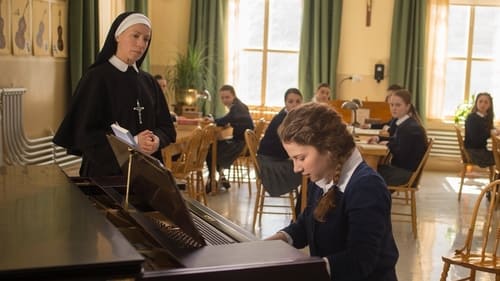
Writer
The nuns of a musical convent work hard in order to prevent the religious school from closing.

Director
The nuns of a musical convent work hard in order to prevent the religious school from closing.
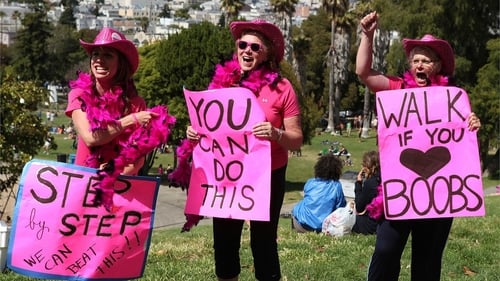
Director
순수한 의미로 출발했던 유방암 캠페인은 거대 상업자본과 결탁하면서 점차 상업적 홍보의 각축장이 되었다. 매해 수십 억의 돈이 유방암 캠페인의 이름으로 모금되지만 이 돈이 어디로 가는지 그리고 실제 어떤 사업에 쓰이는지는 분명하지 않다. 유방암 캠페인은 번지르르한 성공담으로 포장되면서 애매하고 혼란스럽게 바뀌어버렸다.영화는 마케팅 전문가가 ‘꿈의 대의명분’이라고 이름 붙이기도 한 유방암 캠페인의 충격적 현실을 조명한다. (2012년 제14회 서울국제여성영화제)

Director
Christmas approaches and the Lévesque family has once again gathered for their traditional celebration. But this time there is a mixture of emotions running through each person. The patriarch of the family suffers from a combination of Parkinson’s Disease and heart failure. His life reduced in every way, the end approaches and there are unhappy memories of his once violent and authoritarian past. But his wife, ten children and many grandchildren try to maintain a semblance of the Christmas season.

Screenplay
Christmas approaches and the Lévesque family has once again gathered for their traditional celebration. But this time there is a mixture of emotions running through each person. The patriarch of the family suffers from a combination of Parkinson’s Disease and heart failure. His life reduced in every way, the end approaches and there are unhappy memories of his once violent and authoritarian past. But his wife, ten children and many grandchildren try to maintain a semblance of the Christmas season.
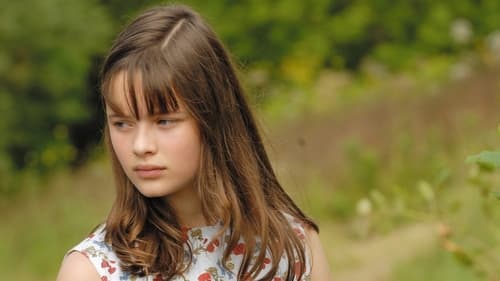
Director
Summer 1966. It's time to enjoy the summer holiday, total freedom. Teenage Élise discovers that the sudden departure of her mother completely disrupts the family. Her brother Coco seeks solace in the garage, building a super racing car. Her youngest brother Benoît throws himself into his own inner world. The father seems absolutely knocked out by the situation. Élise decides to take control of her family, in an eloquent attempt to save them. With the assistance of flourishing nature around her, she stands on the threshold of an incomparable summer.
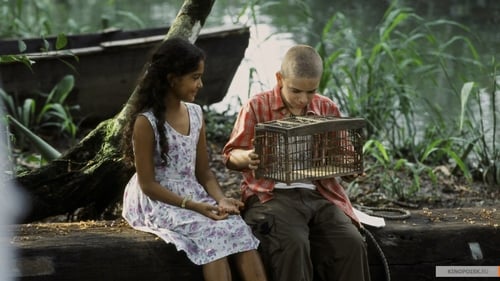
Director
Based on a true story, The Blue Butterfly tells the story of a terminally ill 10-year-old boy whose dream is to catch the most beautiful butterfly on Earth, the mythic and elusive Blue Morpho. His mother persuades a renowned entomologist to take them on a trip to the jungle to search for the butterfly, leading to an adventure that will transform their lives

Self
This compelling documentary explores Canadian film culture and tries to discover what defines Canadian film through interviews with notable filmmakers.
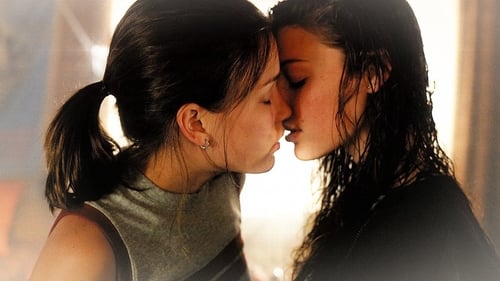
Director
메리 브래드포드는 아버지가 재혼한 뒤 퍼킨즈 걸즈 콜리지에 전학 온 학생. 메리의 룸메이트는 톡톡 쏘는 반항아 폴린 오스터와 아름다운 빅토리아 몰러이다. 어머니를 잃은 메리, 어머니에게 버림받고 입양된 폴리, 부모의 기대에 자신을 맞출 수 없는 토리는 곧 서로의 마음을 이해해주는 절친한 친구가 된다. 메리는 서서히 폴리와 토리가 단순한 친구 이상이라는 것을 알게 된다. 합창 시간에 몰래 교환되는 애무, 옥상에서 그들이 나누는 키스를 지켜보며, 메리는 어느 순간부터 둘의 비밀을 공유하고 수호하게 된 자신을 발견한다. 그들의 비밀은 어느 날 토리의 동생 앨리슨이 언니와 폴리가 같은 침대에 있는 것을 발견하면서 폭로된다. 사태를 해결하기 위해 토리는 둘 사이에 특별한 관계가 있다는 걸 부인하고 폴리를 멀리하게 되는데...

Self
The film consists largely of a series of interviews with female filmmakers from several different countries and filmmaking eras. Some, such as Agnès Varda and Catherine Breillat (both from France), have been making films for decades in a conscious effort to provide an alternative to the male filmmaking model; others, such as Moufida Tlatli (Tunisia) and Carine Adler (England), are relative newcomers to directing, and their approaches seem more personal and less political. The film as a whole manages to cover some important topics in the feminist debate about film -- how does one construct a female gaze, how can one film nude bodies without objectifying the actors (of either sex), what constitutes a strong female role -- while also making it clear that “women’s film” comprises as many different approaches to filmmaking as there are female filmmakers.
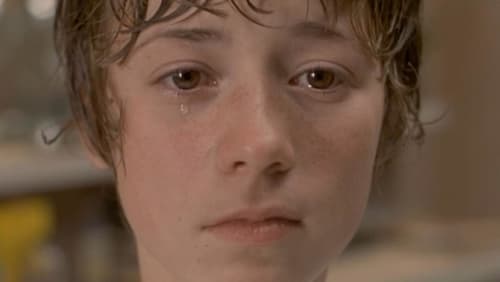
Writer
A coming-of-age tale centered around Hannah, a young girl who is living a troubled family life. Set in 1963, Hannah develops a fascination with Jean-Luc Godard's then-recent film "Vivre sa vie". As she begins to model herself after the film's lead role, Hannah slowly begins to explore the confusing nature of her sexuality.

Director
A coming-of-age tale centered around Hannah, a young girl who is living a troubled family life. Set in 1963, Hannah develops a fascination with Jean-Luc Godard's then-recent film "Vivre sa vie". As she begins to model herself after the film's lead role, Hannah slowly begins to explore the confusing nature of her sexuality.

Screenplay
Gabrielle's universe, one of Canada's most important French-language writers.

Director
Gabrielle's universe, one of Canada's most important French-language writers.

Writer
During the long train ride from Montreal to Vancouver, a man and woman find themselves increasingly attracted to each other.

Director
During the long train ride from Montreal to Vancouver, a man and woman find themselves increasingly attracted to each other.

Director
As the paramedics pry her hand apart from her dead lover's grip a woman's life flashes before her eyes. Racing to the hospital the stunning skies and rooftops of Montreal from the back of the ambulance are inter-cut with the most exquisitely cinematic memories.

Writer
As the paramedics pry her hand apart from her dead lover's grip a woman's life flashes before her eyes. Racing to the hospital the stunning skies and rooftops of Montreal from the back of the ambulance are inter-cut with the most exquisitely cinematic memories.

Director
Six stories about Montreal. 1: A young housewife from Toronto samples the nightlife using basic French. 2: The tale of a painting of Montreal's first mayor, Jacques Viger. 3: During a hockey game, Madeleine tries to tell Roger she wants a divorce after forty years of marriage. 4: A visitor to a conference on pictographs arrives at the airport, where the female customs officer steals a momento from each person. 5: As she is being driven to the hospital in an ambulance after an auto accident, Sarah recalls her life. 6: At a diplomatic reception, an older woman reminisces about her grand love in Montreal.

Director
Marianne, a young Canadian nurse living as an expatriate in Switzerland, is traumatized by a violent incident and becomes lost in the Alps. In time, a Swiss engineer working in the mountains discovers her; he gives her a place to stay and slowly gains her trust as she regains her health. However, he soon discovers she's wanted by the law, and circumstances become difficult for him as he tries to hide her from the authorities.

Director
A woman travels across the United States, confronting memory while observing American culture through its hotels and motels.

Screenplay
Pierre is a Montreal photojournalist who returns from Nicaragua to find that his ten-year menage a trois is over. Haunted by his mid-life crisis, he becomes obsessed with trying to find out why his two lovers, Sarah and David, have left him.

Director
Pierre is a Montreal photojournalist who returns from Nicaragua to find that his ten-year menage a trois is over. Haunted by his mid-life crisis, he becomes obsessed with trying to find out why his two lovers, Sarah and David, have left him.

Director
After the death of her father, Anne — a brilliant but emotionally unstable painter/sculptor — returns from Switzerland to her home town in Quebec. Setting up a studio, she becomes obsessed with her work, to the extent that she grows farther and farther from her Swiss lover.

Director
Even though the protagonist of the Canadian Femme De L'Hotel is a female filmmaker, one would think twice before suggesting that this effort by Swiss-born director Lea Pool is autobiographical. Paule Baillargeon portrays a well-known director who returns to her home town of Montreal to film a high-budget musical drama. At her hotel, Paule has a brief but unsettling encounter with a suicidal elderly woman (Louise Marleau). This element of the plot is briefly forgotten as we get to know the actors in Paule's current project. Then she meets the old lady again, and with mounting incredulity Paule discovers that the actual events in the woman's life mirror the fictional events in the director's film.

Director

Writer

Director
